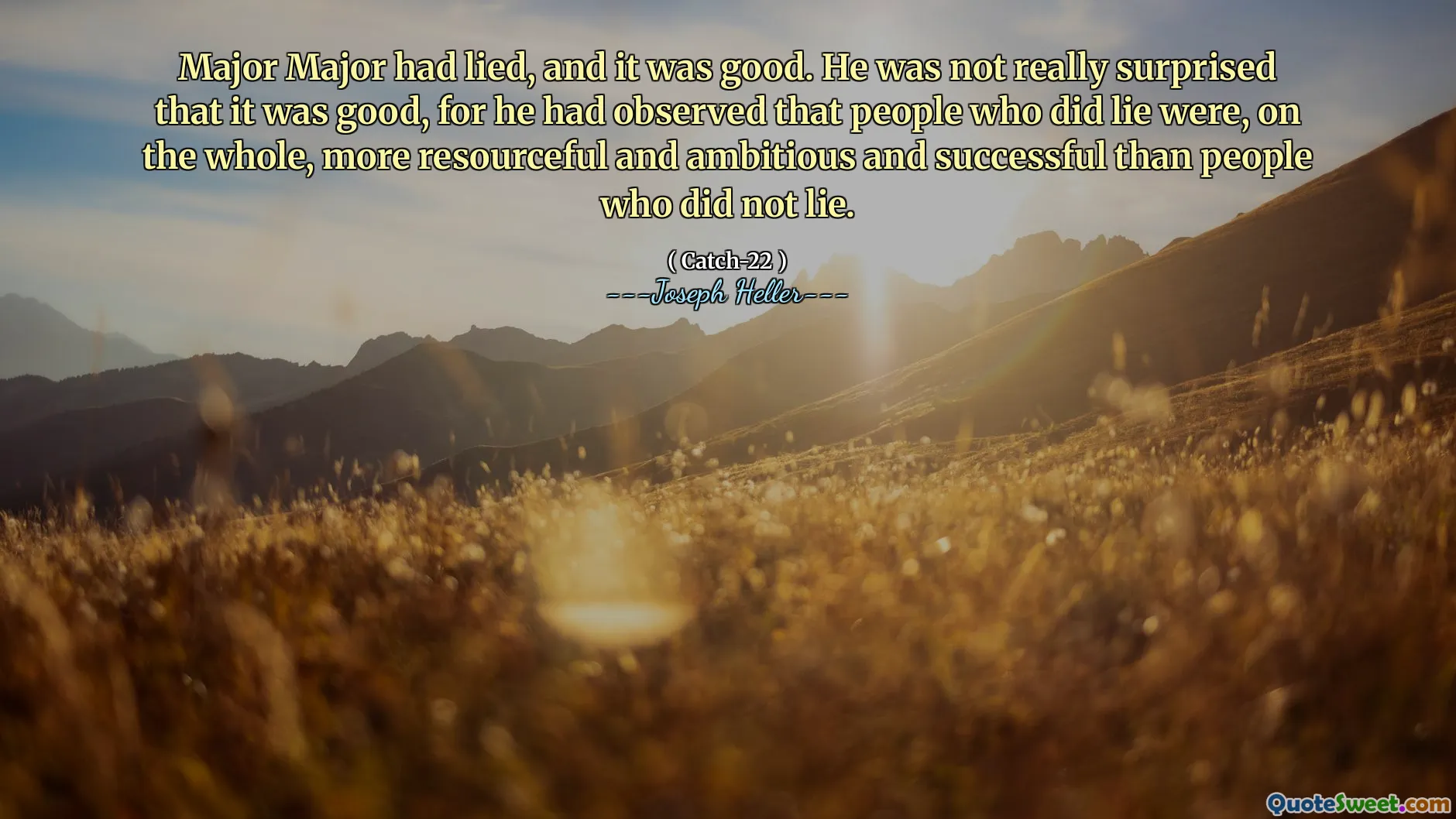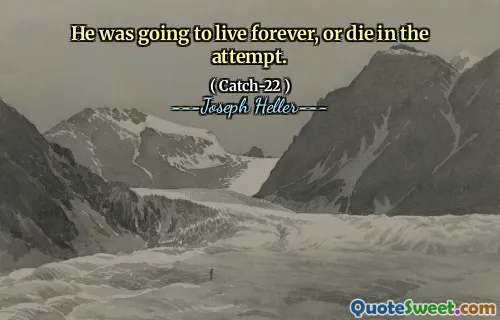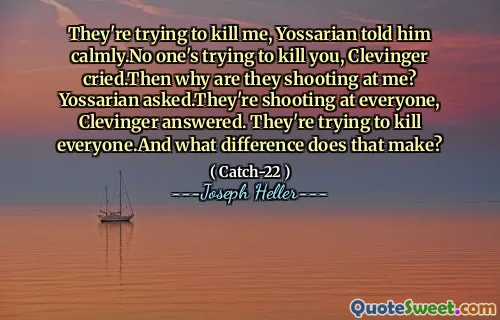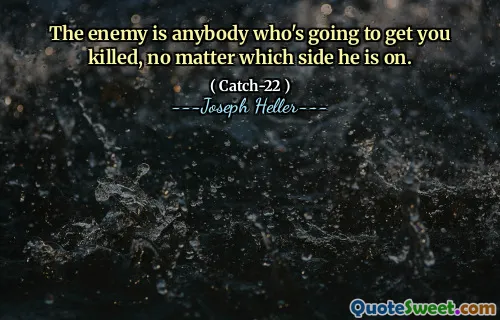
Major Major had lied, and it was good. He was not really surprised that it was good, for he had observed that people who did lie were, on the whole, more resourceful and ambitious and successful than people who did not lie.
In "Catch-22" by Joseph Heller, Major Major discovers a surprising truth about lying and its benefits. He realizes that those who lie often tend to be more resourceful, ambitious, and ultimately more successful than those who are honest. This revelation about the nature of deceit reflects the complexities of human behavior and the societal structures that reward certain traits over others.
This insight into Major Major's perspective challenges traditional views on honesty, suggesting that in a competitive environment, deception might provide advantages. Heller's exploration of these themes illustrates the moral ambiguities faced by individuals in a chaotic world, prompting readers to consider the true value of integrity versus the practical outcomes of dishonesty.











